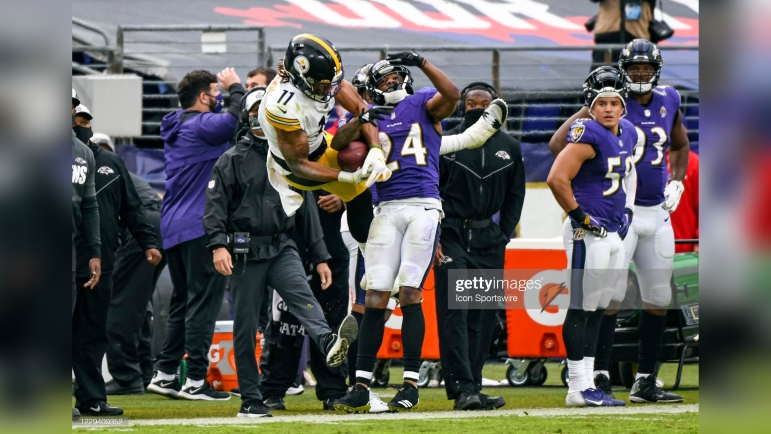The Chicago Bears paid a hefty price for former Pittsburgh Steelers wide receiver Chase Claypool, trading away their second-round draft pick. That turned out to be the 32nd-overall pick in the draft given their league-worst record.
But they also got a hefty return for trading way the first-overall pick in the draft, recouping from the Carolina Panthers the 9th- and 61st-overall picks in 2023, a first-round pick in 2024, and a second-round pick in 2025.
Oh, and starting wide receiver D.J. Moore. Awkward.
Moore is already playing under a three-year, $61,884,000 deal. He is owed nearly $20 million by the Bears in 2023, about $16 million in 2024, and about the same in 2025. So what does that mean for Claypool, who would anticipate a contract extension this offseason?
Most quality, full-time starters get contract extensions after their third season, mutually beneficial because the player gets paid a year before hitting free agency and the team doesn’t have to compete with other teams to re-sign him.
The former second-round draft pick does not have a great deal of leverage, coming off a poor season. After the Steelers traded him mid-season he caught just 14 passes for 140 yards. And he fumbled, too.
Now, Chicago would not have traded for Claypool if it did not believe in his talent and did not intend to invest in him. But the Bears did not know they would end up with the top pick in the draft or what bounty they would be able to get in return for it.
Now they have Moore, who has averaged over 1,100 yards over the past four years with quarterback play from the likes of Kyle Allen, a broken-down Cam Newton, Baker Mayfield, Sam Darnold, Teddy Bridgewater, and P.J. Walker.
The Bears obviously want to surround young quarterback Justin Fields with talent to give him the best chance of succeeding. But what kind of deal could they do with Claypool now? Would they? Or would they let him play out his contract and see what happens?
They can’t be as committed to him as they felt they would be when they first traded for him. He struggled when he got there, and now they have added a more potent—and much more expensive—wide receiver to the room.
The good news is that it’s not the Steelers’ problem. All they have to do is enjoy the 32nd-overall pick and figure out how best to spend it. Perhaps another wide receiver? I’m not recommending it, per se, but we certainly can’t bet against it given the team’s track record.






